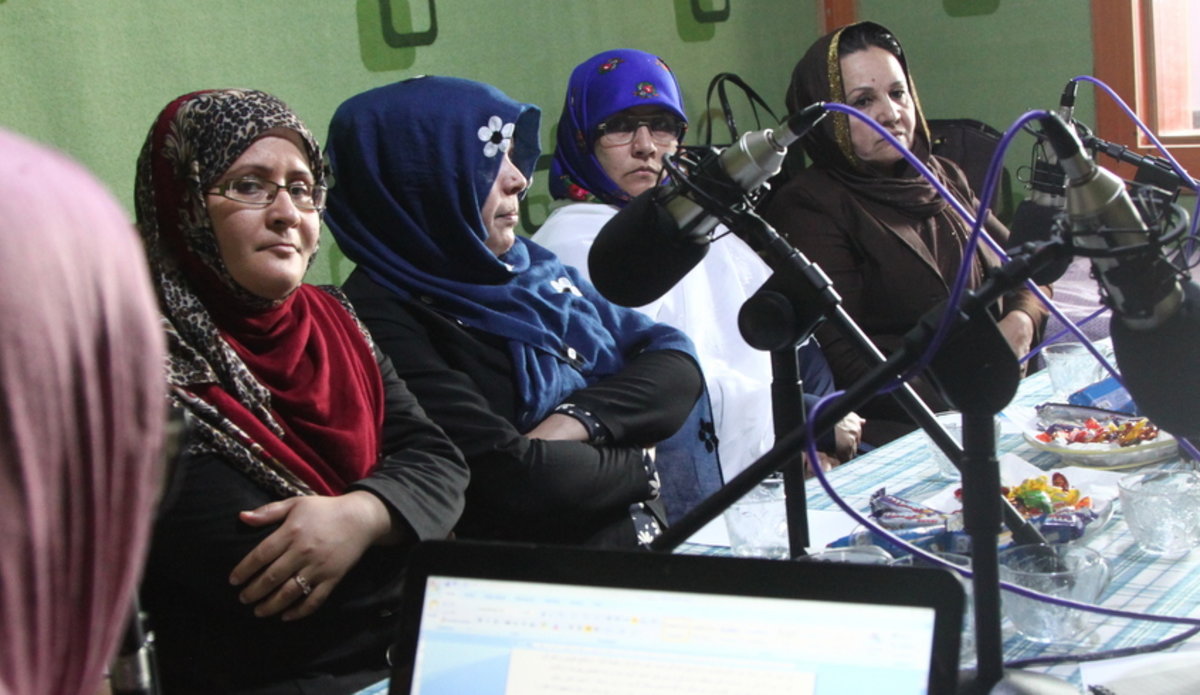UN initiatives supporting relaunch of Kunduz media programmes
KUNDUZ - Radio broadcasts and other media programmes in Kunduz -- following the expulsion of the Taliban from the city last October -- have resumed thanks in part to several United Nations initiatives.
Two local radio stations restarted broadcasts this week -- Sheasta Radio, a radio network dedicated to women’s issues, and Kaihan Radio, which broadcasts shows geared to young Afghans.
Both stations were looted during the Taliban’s attack and takeover of Kunduz between 28 September and 13 October2015, and their staff forced into hiding. But with assistance from the UN Development Programme in Afghanistan (UNDP), damaged station equipment has since been replaced.
“Our two stations share the same equipment, so this investment goes a long way,” said Zarghoona Hassan, Editor-in-Chief of Shaesta, in a statement put out by UNDP. “Over the next few months, we’ll be promoting women’s rights and youth issues throughout the local area.”
Previously, the stations reached Kunduz and neighbouring provinces with information about healthcare and education services. They also promoted shows about the law and politics.
UNAMA has been supporting Kunduz radio and TV through a combination of technical assistance and outreach activities. Following the end of fighting in the city, UNAMA supported the people of Kunduz by backing a series of public information programmes with Kunduz RTA and Independent Radio Kunduz. The broadcasts aired via four local radio and TV channels.
UNAMA also supported journalists in Kunduz working in radio, video and photography.
In Afghanistan, 73 per cent of households own a radio, compared to 45 per cent with a television. This makes radio the most effective way to reach large numbers of Afghans, especially in areas with low literacy rates.
“Local radio is a great way to spread important messages about women’s rights where they need to be heard the most,” said Cecilia Ncube, UNDP’s Gender Project Manager.
Women in conservative areas of Afghanistan, such as Kunduz, are often denied healthcare, employment and legal services. Local radio can let women know what services are available to them, what their rights are and where they can go if they need help.
“We stand behind the people of Kunduz and are proud that we can help women regain their voice,” said UNDP Country Director Douglas Keh. “Hearing other women’s voices on air can bring hope and encouragement to those who feel trapped at home and are afraid to speak out.”
UNDP is part of the UN family in Afghanistan. As the UN's global development network, UNDP advocates for change and connect the Afghan government, NGOs, civil society and other partners to the knowledge and resources they need to help the Afghan people build a better life.
More than 20 different UN entities are present in the country, working to support the Afghan government’s priorities through a broad spectrum of development and humanitarian activities, including through support for development planning, resource mobilization, and coordination of international donors and organizations.
UNAMA is mandated to support the Afghan Government and relevant international and local non-governmental organizations to assist in the full implementation of the fundamental freedoms and human rights provisions of the Afghan Constitution and international treaties to which Afghanistan is a State party, in particular those regarding the full enjoyment by women of their human rights.
 UN
UN







